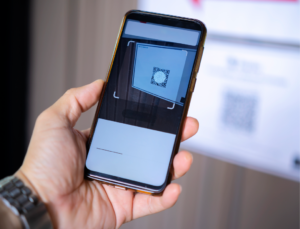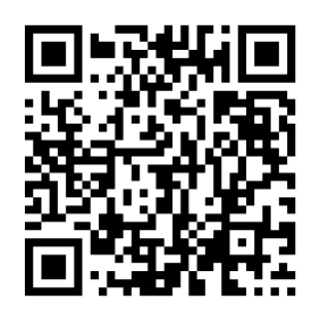1. Speed
The key advantage of mobile passport scanning is its speed. Manual data entry, especially from complex documents like passports and ID cards, can take minutes. Especially in high-traffic environments like airports or hotels, employees end up spending hours a day just typing personal information into a system.
With a high-performance MRZ Scanner in an internal mobile app, staff can extract this information from passports or ID cards within milliseconds. This allows them to complete check-ins and boarding in a fraction of the time previously required.
Customs and immigration workflows benefit in similar ways. Travelers can now use mobile apps to scan their passports and provide details about their plans and the purpose of their stay. This information is then electronically transmitted to customs and immigration, allowing users to skip traditional paperwork and queues.
2. Data accuracy
Mobile passport and ID scanners are considerably more accurate than manual data input.
People commonly make mistakes when typing off names, ID numbers, and similar personal information. And they will not always catch them – especially in situations where they have to enter a lot of data rapidly.
In contrast, mobile scanning technology extracts passport information automatically and with consistently high accuracy.
Automating such data entry has enormous advantages for both organizations and their customers. Every year, businesses waste millions of dollars due to inaccurate information. Statistics provided by IBM suggest that poor data quality costs U.S. enterprises more than $3 trillion in a single year.
3. Flexibility
Until recently, scanning ID cards and passport MRZs required specialized, stationary equipment. These tools are not only costly, but also cumbersome, and require special training to use. Even the existing gadget alternatives often depend on base stations connected to desktop computers, taking up valuable workspace and requiring employees to stay nearby.
Today, your staff can carry out the same tasks with any ordinary mobile device. Mobile passport scanning lifts your team and your operations to a new level of adaptability. For instance, this lets you instantly open a new checkpoint or point of service for your customers just by sending a staff member there. All they need is their mobile phone and the integrated passport scanner app.
4. Data security
Many mobile scanning solutions on the market are cloud-based, and so cannot function without an active internet connection.
This raises profound security concerns: If your scanning feature depends on an internet server to scan IDs and passports, it is vulnerable to data breaches. A successful attack could threaten your entire organization.
Identity documents contain sensitive information that companies must handle as securely as possible. Offline solutions provide the strongest data protection, as the scanning and processing of information are done solely on the device. The extracted information is never transferred to third-party servers. For an additional layer of security, the information can be encrypted at rest and in transit.
Offline scanning makes smartphones a secure alternative to dedicated hardware scanners.
Conclusion
Mobile passport scanning is a fantastic option for hospitality and travel businesses. The benefits range from faster check-in and boarding to more accurate data collection and increased security. It also gives enterprises and their staff high flexibility, as mobile devices are quickly replacing traditional, stationary scanning equipment.
Mobile passport scanning is poised to become a regular feature of international travel and hospitality, enabling smooth and secure experiences for businesses and their customers.







